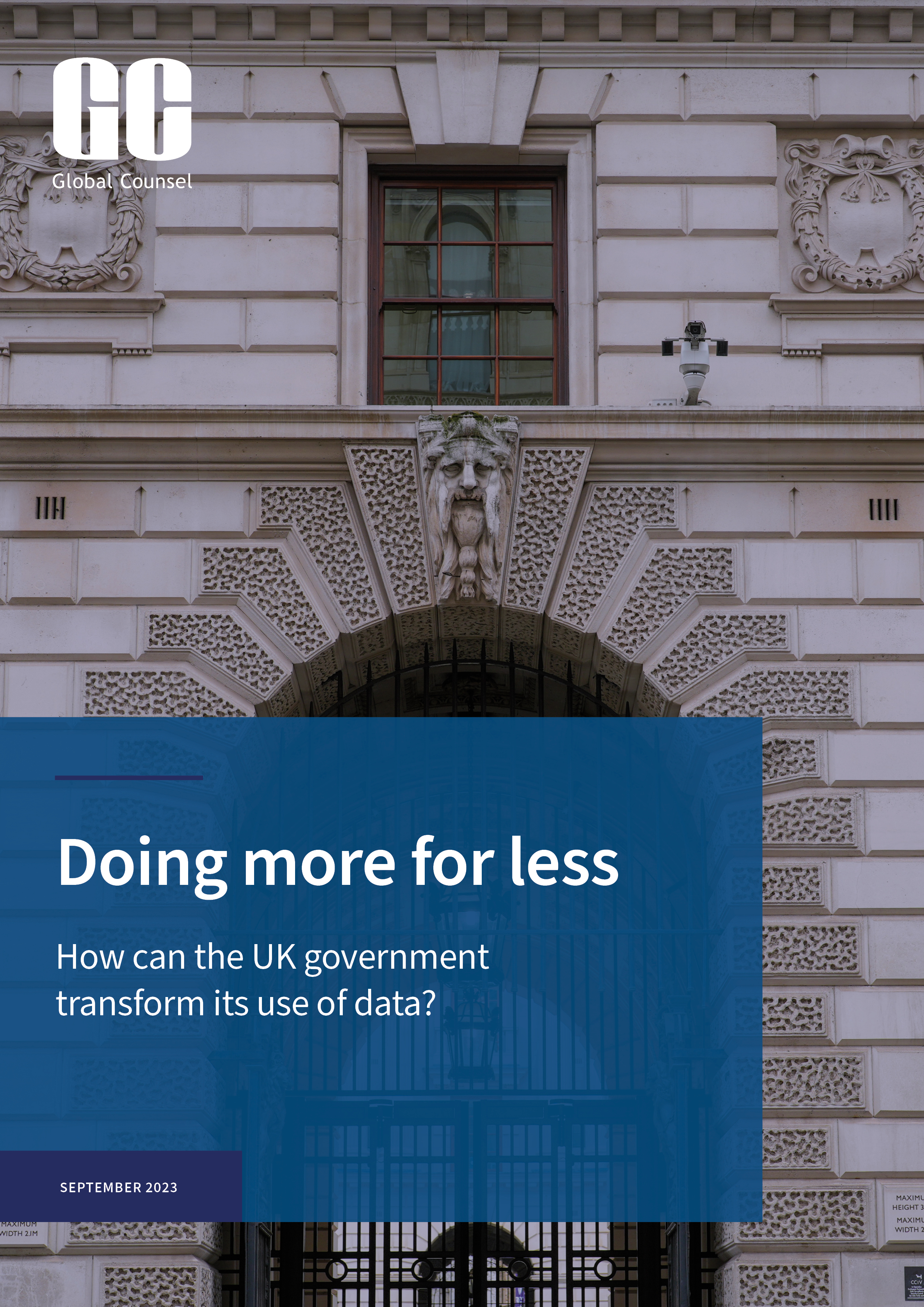Date
Tech, media and telecoms
UK politics and policy
Doing more for less: how can the UK government transform its use of data?
By
Share
The last few years have had a transformative effect on the UK public sector. The pandemic exacerbated existing inefficiencies and highlighted a lack of digital and data-led systems across Whitehall, while conversely demonstrating the potential of digitisation in the public sector and the opportunities which stem from a data-led approach.
As we look forward to the next general election, our technology, media and telecoms team, led by Senior Associate Poppy Woodcock, has produced an original report making recommendations to a future government focused on seizing the opportunities from greater technology deployment. This includes delivering better and more efficient public services, ensuring accountability for delivery, and streamlining procurement.
The report identifies the strong need for a ministerial champion to drive change across government and combat the current siloed nature of data in Whitehall. It sets out the ambitious goal of proactive public services, with technology identifying those most in need who are missing out on support and tackling fraudulent claims. It also considers what the government must do in order to deploy artificial intelligence across departments, creating huge efficiencies in administrative tasks and making it easier for civil servants to make fully evidenced decisions.
Global Counsel convened a working group of leading business associations and technology companies with significant experience of providing technology services to national, devolved, and local government whose observations were used to inform our report. Interviews with thought leaders and government officials working in this space also contributed to the report.
Summary of recommendations
Optimising cost management to provide value for money
- Appoint a digital champion to lead reforms across Whitehall: The government could appoint a minister to lead a team across the Treasury and the Cabinet Office driving digital transformation across Whitehall.
- Diversify data: To improve cost and spending predictions, the government should gather and integrate more diverse data categories in budget calculations.
Delivering tailored and proactive public services
- Make a ‘no-stop shop’ the government’s ambition: The government’s attempt to create a ‘one-stop shop’ will dramatically reduce the amount of paperwork and repetitive data needed to access public services but would likely still miss individuals who have not directly requested the service. In the medium term, the government should prioritise developing proactive public services and a ‘no-stop shop’ approach, to ensure everyone eligible for public services is offered them.
Digital transformation through local government
- Introduce common data standards for local government: For different entities, such as local and central government bodies and third-party organisations, to collaborate effectively, it is essential to establish data standards and clear operating practices. This will facilitate the efficient use and integration of data, as well as enable sharing of information between institutions.
- Upgrade central capacity mapping: While issues such as housing and social care are frequently devolved to local authorities, common case working systems hold the benefit of creating visibility and better allocation of resources.
Addressing data deficiencies which underpin spending decisions
- Utilise the potential of digital twins for managing government spending: The government should expand existing work on digital twins, utilising these to evaluate and monitor projects. It could do so on a departmental or project based level.
- Introduce a framework for data sharing across government: The government should build a single data sharing framework across Whitehall, governing and enabling cross-departmental data sharing.
Removing the barriers created by legacy systems
- Speed up legacy IT replacement: Removing all legacy systems simultaneously is neither feasible nor prudent but it ought to be done swiftly in order to introduce new technologies. The CDDO should publish an ambitious timeline for legacy system removal.
Reforming funding process and technology procurement
- Complement the Green Book process with guidance on digital projects: The government should develop digital transformation guidance to be considered alongside the Green Book.
- Hardwire digital and data-led processes into government procurement processes: Procurement processes should reflect the government’s priorities on digitisation and incentivise small UK businesses involvement, such as through joint bids. This should be done through the government’s statement of strategic priorities.
The views expressed in this report can be attributed to the named author(s) only.
